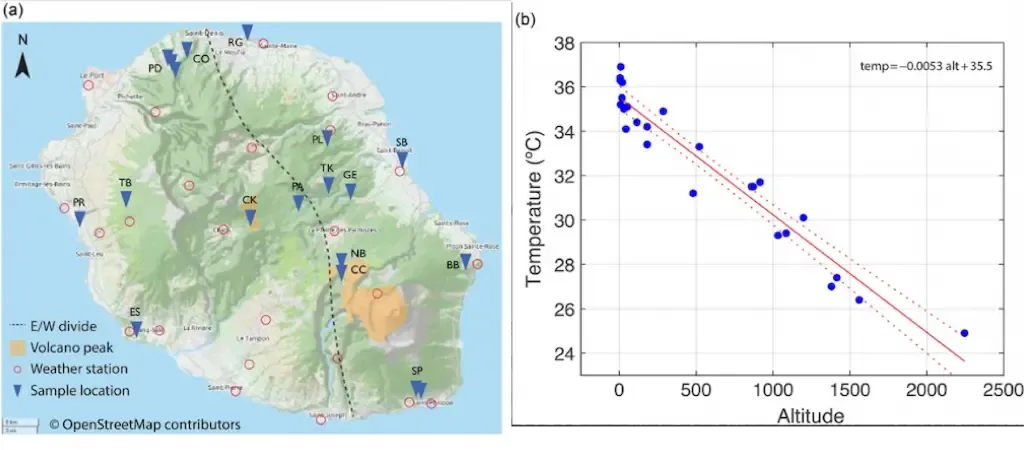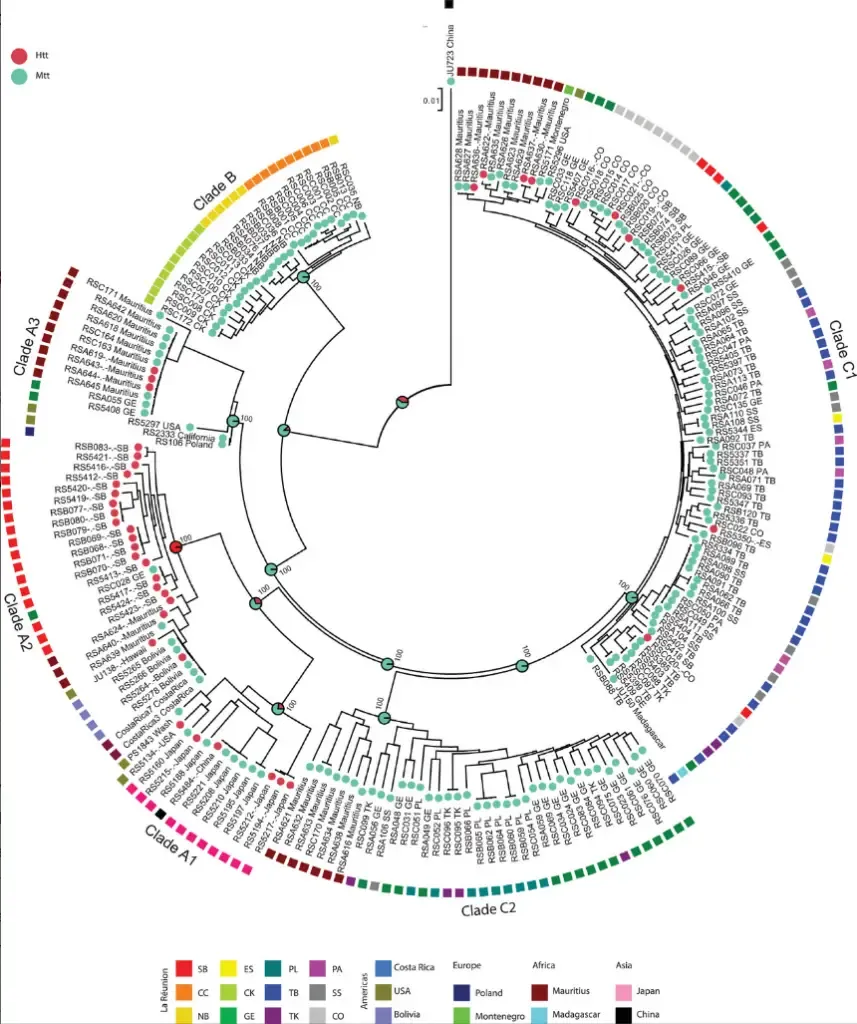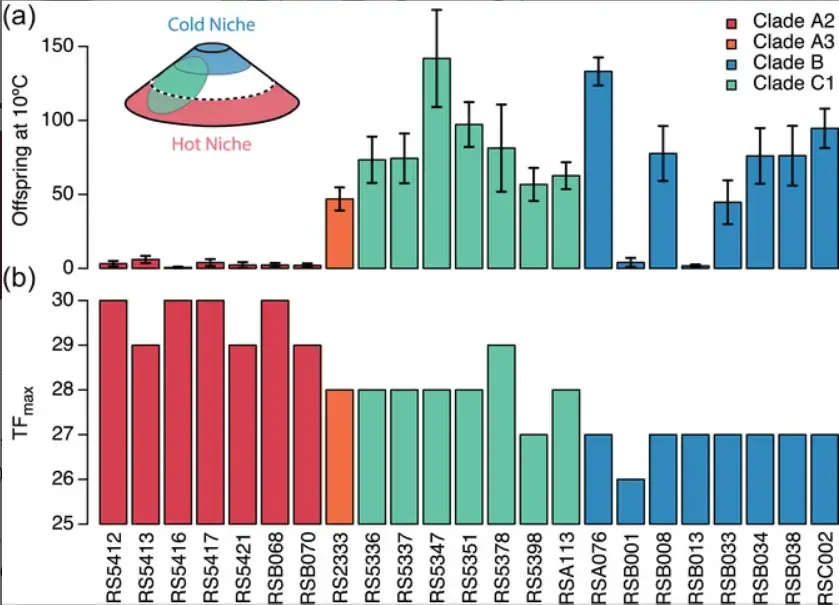We have been interested in the effects of temperature on organisms for quite a while now in the lab, and that has been to a large extent Mark Leaver’s efforts! He took on a very different project to what we were used to and studied the effect of temperature on the nematode Pristionchus pacificus, and did parts of his studies on the indian ocean island of La Reunion, which experiences a range of temperatures from coast to summit. Mark found that P. pacificus is indeed subject to natural selection by temperature on La Réunion, and this opens now possibilities to learn which processes lead to this adaptation.
Mark collaborated with the department of Ralf Sommer of the Max Planck Institute for Biology in Tuebingen and the work now got published in Evolution, congratulations to Mark and his team!
Climate change leads to populations of organisms being exposed to stressful temperatures, but it is not known to what degree organisms adapt to the temperature of their niche. Mark found that the occurrence of high temperature adapted strains decreases with increasing altitude on the volcanic island.

The occurrence of the Htt strains increases with decreasing altitude of their collection site
Phylogenetic analysis of P. pacificus strains suggested that thermal adaptation has happened multiple times independently in the different clades, which is consistent with the phenotype arising many times in parallel

Phylogenetic tree of P. pacificus strains shows one clade highly enriched with Htt strains
Our conclusion from the work is that P. pacificus is subject to natural selection by temperature on La Réunion
Most excitingly, we can study thermal adaptation in P. pacificus strains that are most likely subject to natural selection in the wild and learn what molecular and cell biological processes are behind this in the laboratory studies.

